Seeking Peace in El Salvador:
The Struggle to Reconstruct a Nation at the End of the Cold War
Diana Villiers Negroponte, Author and Brookings Institution Nonresident Senior Fellow
Photos
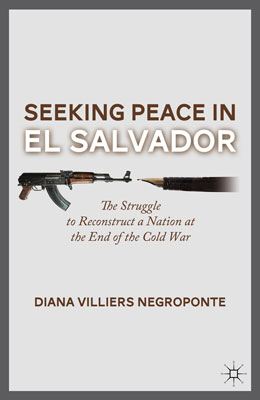 Washington, DC—On June 14, 2012, Diana Negroponte, author and Brookings Institution Nonresident Senior Fellow, spoke to WFPG on her new book, Seeking Peace in El Salvador: The Struggle to Reconstruct a Nation at the End of the Cold War. Negroponte focused primarily on how the 11-year-long civil war in El Salvador has had repercussions still felt today, the process of mediation by the international community, as well as the role of women in the civil war in El Salvador. The event was hosted by Mr. & Mrs. Maurice B. Tobin and the Honorable Henrietta Fore.
Washington, DC—On June 14, 2012, Diana Negroponte, author and Brookings Institution Nonresident Senior Fellow, spoke to WFPG on her new book, Seeking Peace in El Salvador: The Struggle to Reconstruct a Nation at the End of the Cold War. Negroponte focused primarily on how the 11-year-long civil war in El Salvador has had repercussions still felt today, the process of mediation by the international community, as well as the role of women in the civil war in El Salvador. The event was hosted by Mr. & Mrs. Maurice B. Tobin and the Honorable Henrietta Fore.
Negroponte emphasized that, while mediators from the international community are important in the peacemaking process, the war in El Salvador would not have ended without the work of El Salvadorians themselves. One such example is the role of Jesuit priests, who worked to bring peace to their communities amidst the fighting. She stressed that the international community should learn from this conflict that mediators must be willing to negotiate at the same time the fighting is going on. According to Negroponte, during the civil war in El Salvador the United States pledged only to intervene once the fighting stopped, which was not the wisest course of action. She explained that guerrilla forces do not have any "leverage" in the peace negotiating process if they stop fighting, which is why they are generally unwilling to put down their arms for a potential truce.
According to Negroponte, another lesson for peacemakers is that men and women eventually become exhausted after a long period of fighting. In this period of exhaustion, there is a brief window of opportunity during which people are more willing to make peace. Because this window passes very quickly, mediators "have to calibrate the efforts to negotiate and reach that peace during this small window." If a peaceful compromise can be reached during this time, the international community will be able to play a stronger role in reconstructing the post-war nation.
Women joined in the fighting in El Salvador alongside their male family members, making them a crucial component in the civil war. They participated in all aspects of the war, including combat, carrying messages, tending to the wounded, and providing food. She explained that these women also expected to play a part in the peace negotiations, but once the fighting ended, they withdrew from public life completely in order to return to their families. Essentially, the women were only involved because the men in their lives were fighting, but once all the male fighters returned home as the peace was being negotiated, the women withdrew as well. Negroponte added that the country's post-war constitution allotted 30% of the seats in the legislature for women, which seemed very progressive. However, Salvadorian women were reluctant to participate in public life after the war, and most were not willing to fill the reserved seats.
Although the civil war in El Salvador technically ended two decades ago, Negroponte believes that the repercussions from this war are still present in the United States. Particularly, the young men who grew up surrounded by violence and chaos during the war then migrated to Los Angeles and ended up in the prison system, where they became maras, or gang members. These gangs, even though they were no longer in El Salvador, fought amongst themselves over gang territory—simply because violence was embedded within their upbringing. Negroponte also discussed the role of gangs in drug trafficking between South America and the United States. This "dangerous concoction" exists in the United States and in El Salvador, but in Salvador the consequences cut even deeper. One key area highlighted by Negroponte was the "independent, violent, [and] uncontrollable" abuses by police, which have remained largely unchecked.
This past March, the violence stopped—a peace Negroponte attributes to the mediation by the Catholic Church and the Jesuits. These peacemakers told the maras to stop killing themselves and the police, and in exchange the priests tried to persuade the government to treat the imprisoned maras better. She stated that, while peace has remained following this agreement, there are consequences that have yet to develop. Even so, the recent compromise in El Salvador shows that peace can be reached, and that both domestic and international mediators play an invaluable role in the process.
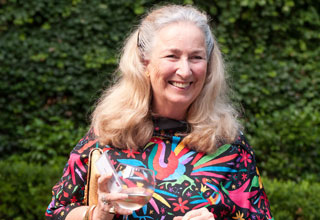 |
 |
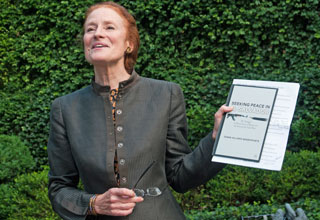 |
Co-host Joan Tobin welcomes guests
|
|
Co-host the Honorable Henrietta Fore introduces D
iana Negroponte's book, Seeking Peace in El Salvador
|
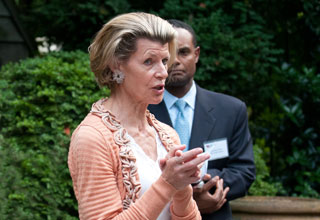 |
 |
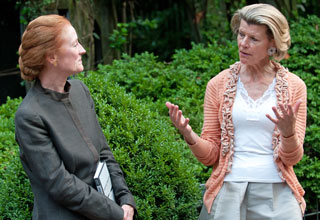 |
Diana Villiers Negroponte addresses
WFPG members and guests
|
|
Henrietta Fore and author Diana Negroponte
|
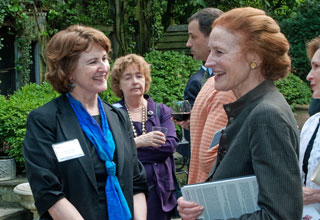 |
 |
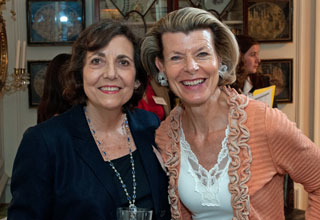 |
Board Members Theresa Loar and Henrietta Fore
|
|
WFPG President Patricia Ellis and Diana Negroponte
|
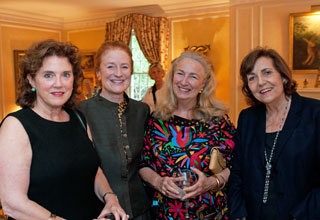 |
 |
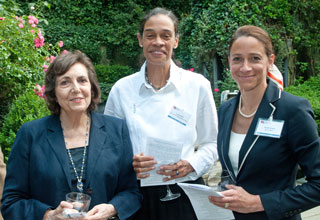 |
Patricia Ellis and Joan Tobin with Board Members
Donna Constantinople and Henrietta Fore
|
|
Patricia Ellis with Board Member
Gail Kitch and Sarah Kahn
|
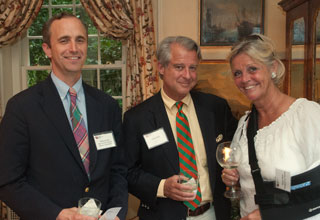 |
 |
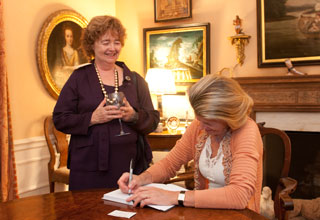 |
Guests during the reception
|
|
Diana Negroponte signing Board Member
Dawn Calabia's book
|
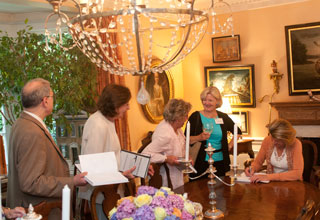 |
 |
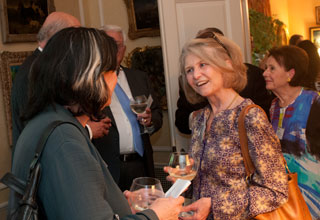 |
| |
|
|